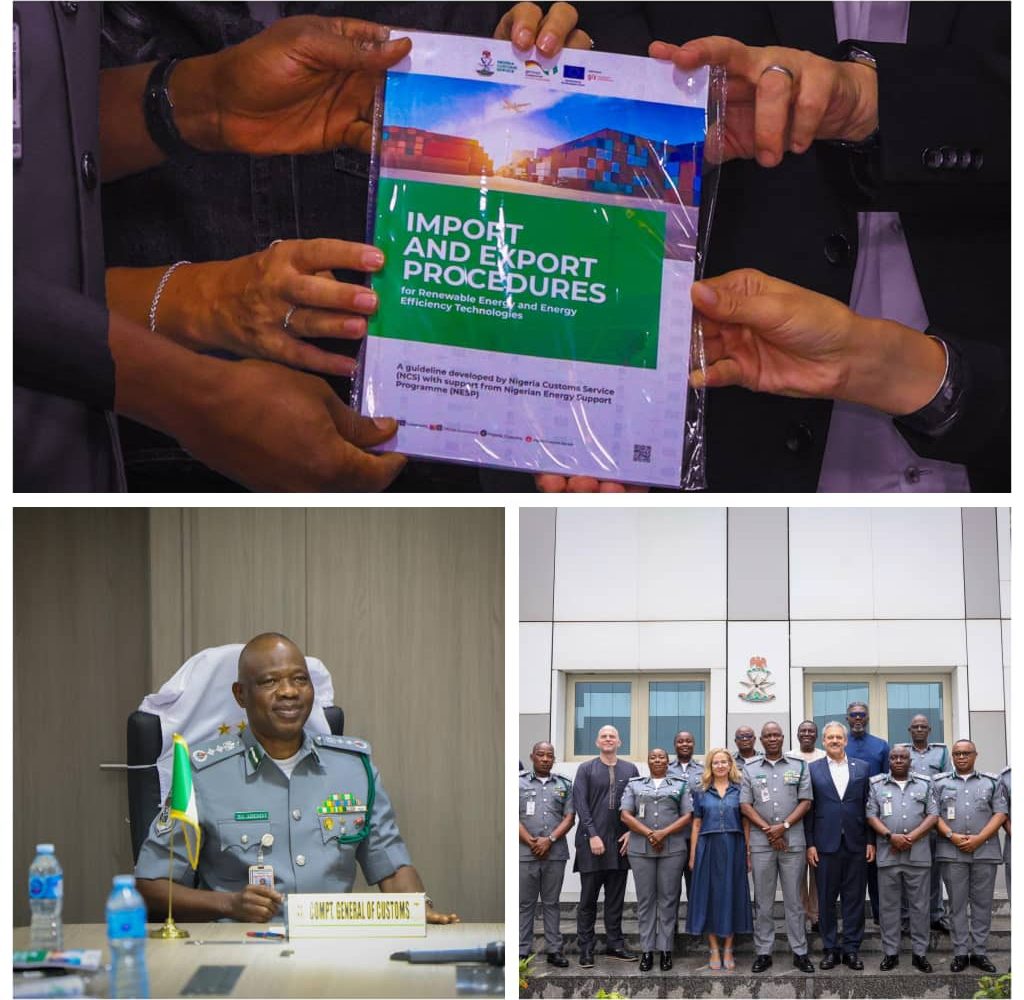The Nigeria Customs Service (NCS) has launched a new Handbook on Import and Export Procedures for Renewable Energy Equipment, marking a significant step towards facilitating responsible trade and improving compliance in the renewable energy sector.
The handbook was unveiled at a ceremony held on July 29, 2025, at the NCS Headquarters in Abuja.
The initiative is a collaborative effort between the NCS, the European Union (EU), the German Embassy, and the Deutsche Gesellschaft für Internationale Zusammenarbeit (GIZ).
The handbook aims to simplify Customs processes related to the import and export of renewable energy equipment, in line with Nigeria’s national energy transition goals.
The Comptroller-General of Customs, Adewale Adeniyi, described the handbook as a “living document” that will be regularly updated to reflect evolving technologies, international best practices, and government policies.
He noted that the move supports the Federal Government’s broader objectives under the Nigeria Energy Transition Plan (ETP), which seeks to achieve net-zero emissions by 2060 while improving energy access for millions of Nigerians.
The EU and German Embassy have expressed their support for the initiative, with Inga Stefanowicz, Head of the Green and Digital Economy at the EU Delegation to Nigeria, praising the Service’s dedication to reforms and compliance.
Karin Jansen, Head of Cooperation at the German Embassy, highlighted Germany’s continued interest in strengthening bilateral cooperation with Nigeria, particularly in areas of green energy and trade facilitation.
The handbook is expected to serve as a vital reference for Customs officers, freight forwarders, renewable energy companies, and other stakeholders operating across Nigeria’s borders.
It provides step-by-step guidance on documentation, tariff classifications, exemptions, valuation, and procedures specific to solar panels, batteries, inverters, wind turbines, and other clean energy components.
The initiative aligns with global commitments such as the Paris Agreement and the African Continental Free Trade Area (AfCFTA), positioning Nigeria as a regional hub for green trade and sustainable logistics.









Comment here